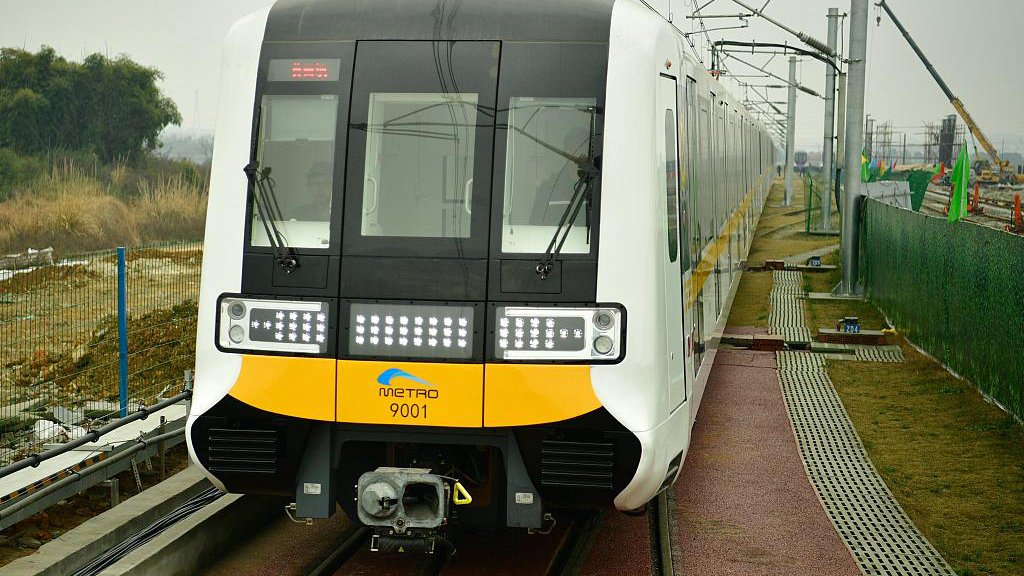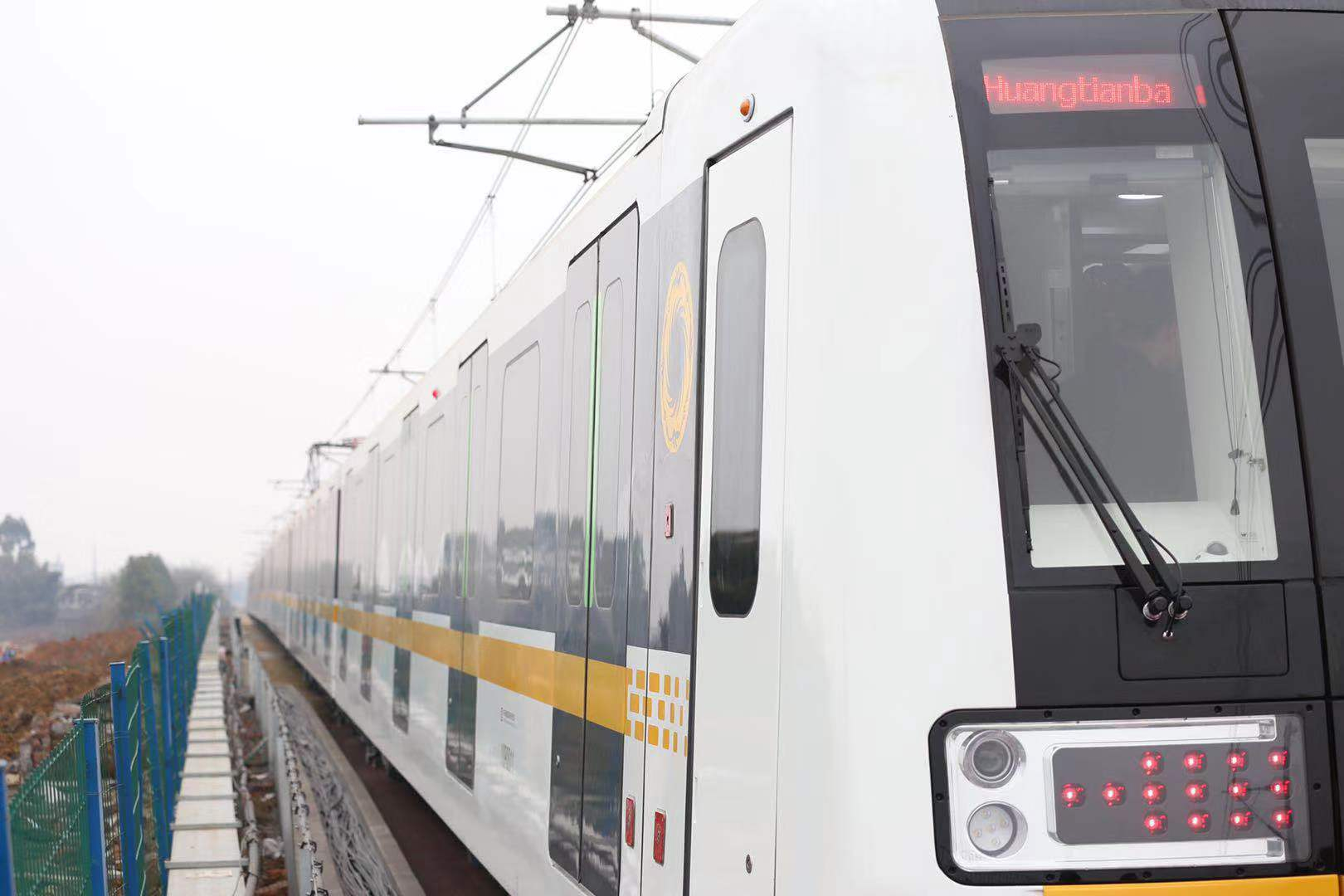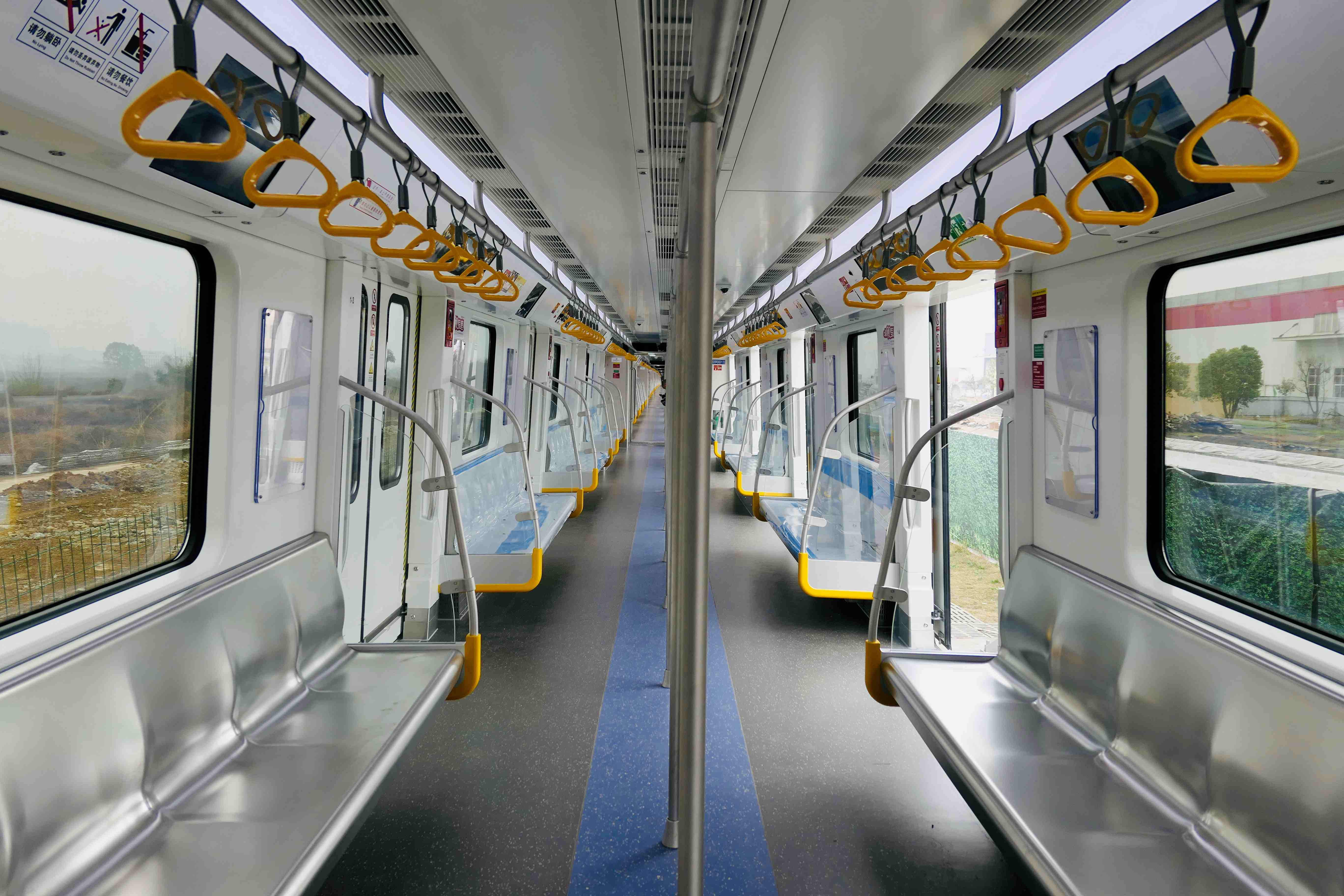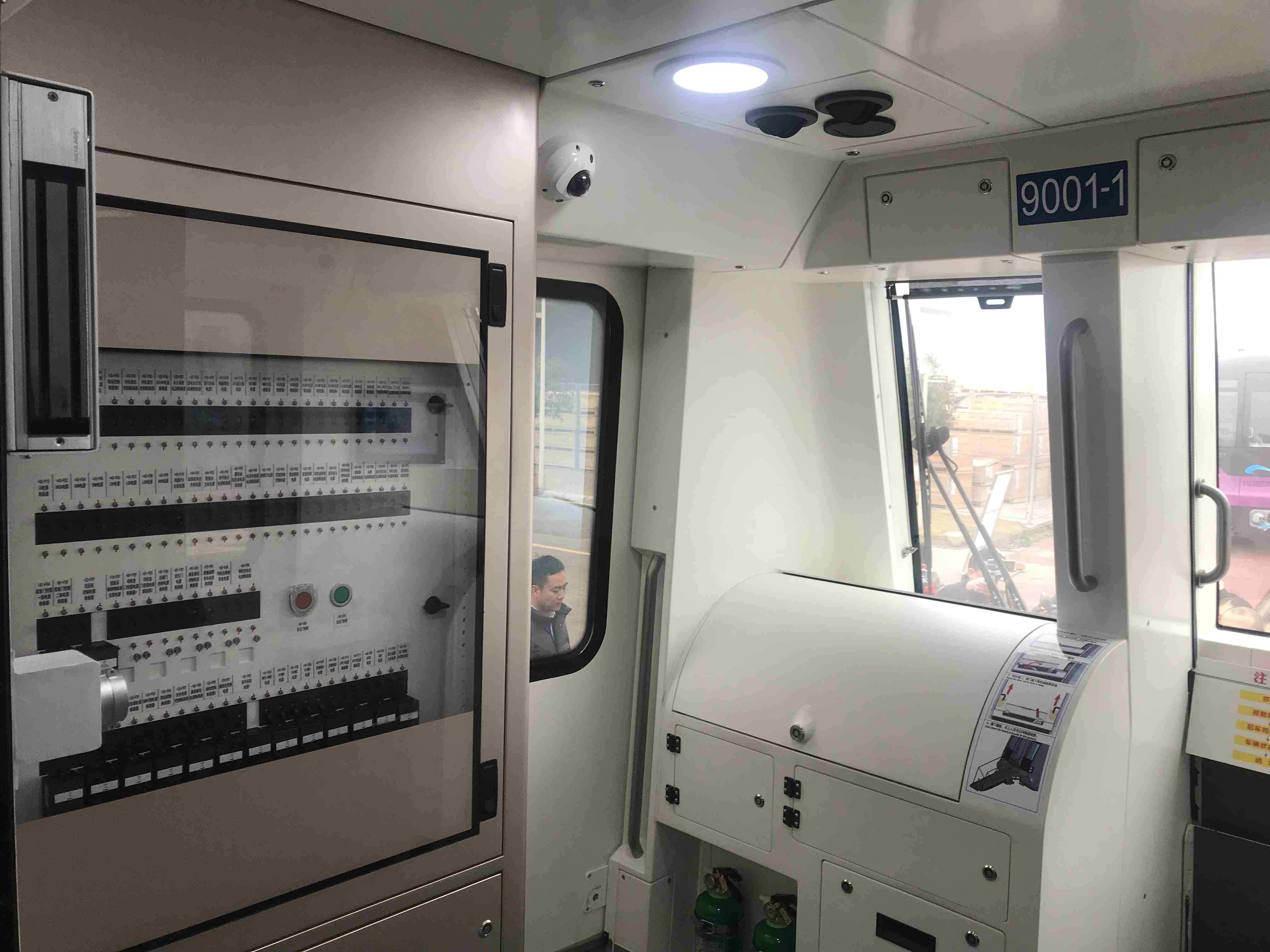
Technology
14:40, 21-Feb-2019
SW China’s first driverless metro train starts debugging
Updated
15:21, 21-Feb-2019
By Yang Jinghao, Luo Caiwen
02:37

A driverless metro train has started debugging in southwestern Chinese city of Chengdu, making it the fourth Chinese city to introduce the unmanned system to its tracks, following Hong Kong, Beijing and Shanghai.
"We have assembled a special team to test the signal, communication and monitoring systems. It still takes great efforts before the line goes into operation," Zeng Jian, an official from the Chengdu Rail Transit Group, told CGTN when the train made its debut on Monday.
The train's system uses the highest level of automatization – Goa4. It is unattended train operation, where trains are able to operate fully automatically at all times without any staff on board. From starting to driving, to returning and even cleaning, each task will be implemented on its own.
The automated train measures 185 meters long and three meters wide, with a maximum capacity of about 3,500 passengers. Its top speed is 100 kilometers per hour.

The exterior of the train /CGTN Photo
The exterior of the train /CGTN Photo
"It's the country's first fully automatic metro train made up of eight large carriages. It adopts the latest technologies. For example, it's equipped with intelligent devices to detect obstacles and derailment risks. Also, there are special designs for the seats and lighting," said Zeng.
During the first short test run, the first group to ride, mostly media, found it quite different from traditional trains.
"We learned that the operator cab will be open to passengers, who can enjoy quite a different experience there. I think this is a highlight of the train," said Liu Tangliang, a test rider.
"I'm quite impressed by its high-tech elements and humanized designs. I hope there will be more such driverless metro lines in Chengdu in the future, which can better serve the citizens," said Fu Wenli, another test rider.

The interior of the train /CGTN Photo
The interior of the train /CGTN Photo
Safety issues for the newly developed automated train remain a major concern for passengers. Zeng explained that the trains will go through safety assessments based on related international standards before becoming operational.
"Actually, we have taken safety issues into full consideration during the designing process, such as the circuit design," Zeng added.
China has seen a boom of metro construction over the past decade, and the network continues to expand. Zeng said he believes the driverless mode will become a trend, which will help save manpower and maintenance costs to a large extent.

The operator cab of the train /CGTN Photo
The operator cab of the train /CGTN Photo
The metro line – line 9 of Chengdu – is expected to go into service in 2020. It stretches about 22 kilometers with 13 stations. There will be a total of 25 such intelligent trains by then.

SITEMAP
Copyright © 2018 CGTN. Beijing ICP prepared NO.16065310-3
Copyright © 2018 CGTN. Beijing ICP prepared NO.16065310-3